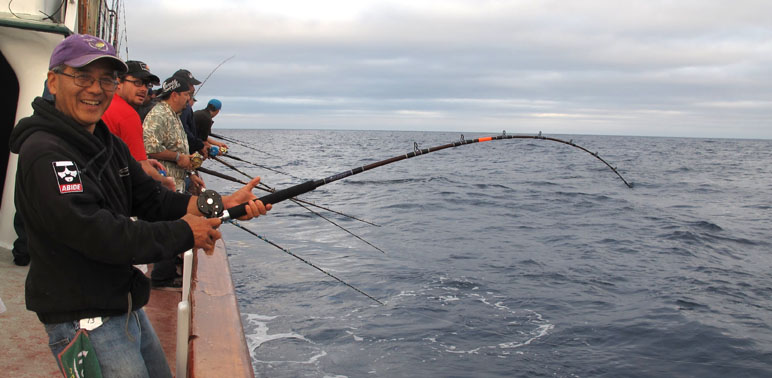According to a 2012 NOAA report, saltwater angling supported 381,000 jobs and generated $58 billion in annual sales impacts. I’ve been following the Gulf of Mexico red snapper controversy that Jes Hathaway wrote about in her blog last week, so it was interesting to come across an item about it in a magazine for boat owners (i.e., recreational anglers). Calling it, “a complicated story, compounded by lawsuits and judges’ rulings” the magazine writer mentions that the red snapper fishery is the healthiest it’s ever been— so healthy that it’s worked against recreational anglers who catch their quota so quickly that their season was last year limited to nine days.
(Of course the article fails to mention that those judges’ rulings were in favor of a suit brought by commercial fishermen against NMFS for failing to stop recreational anglers from overfishing. It also doesn’t mention that the healthy fishery is due to consistent and careful management by the commercial fleet.)
But the main point of the story may be an issue that both recreational and commercial fishermen can agree on: the need for better management of the United States’ saltwater recreational fishermen. That was also recognized by NOAA, which last month announced a new saltwater recreational fishing policy, “to 1) support and maintain sustainable saltwater recreational fisheries resources, including healthy marine and estuarine habitats; 2) promote saltwater recreational fishing for the social, cultural, and economic benefit of the nation; and, 3) enable enduring participation in, and enjoyment of, saltwater recreational fisheries through science-based conservation and management.” You can watch a short video about it below:
Though the two sides are often at odds, the recreational community’s concerns may sound familiar to their commercial counterparts, including public access, stewardship of the resource, better science and better communication between government agencies and the recreational fishermen.
They too have jobs that depend on a healthy resource, but that industry has also suffered in ways that the commercial fleet hasn’t. When the economy took a slide about 5 years ago, people stopped buying boats. Now that the economy is getting better, there will be more anglers on the water. Let’s hope that better all-around management helps prevent situations (and costly court battles) like red snapper in the gulf.
Here’s also hoping that the goal of better communication helps make those “complicated” fishery management stories a little easier to understand when sacrifices need to be made.







